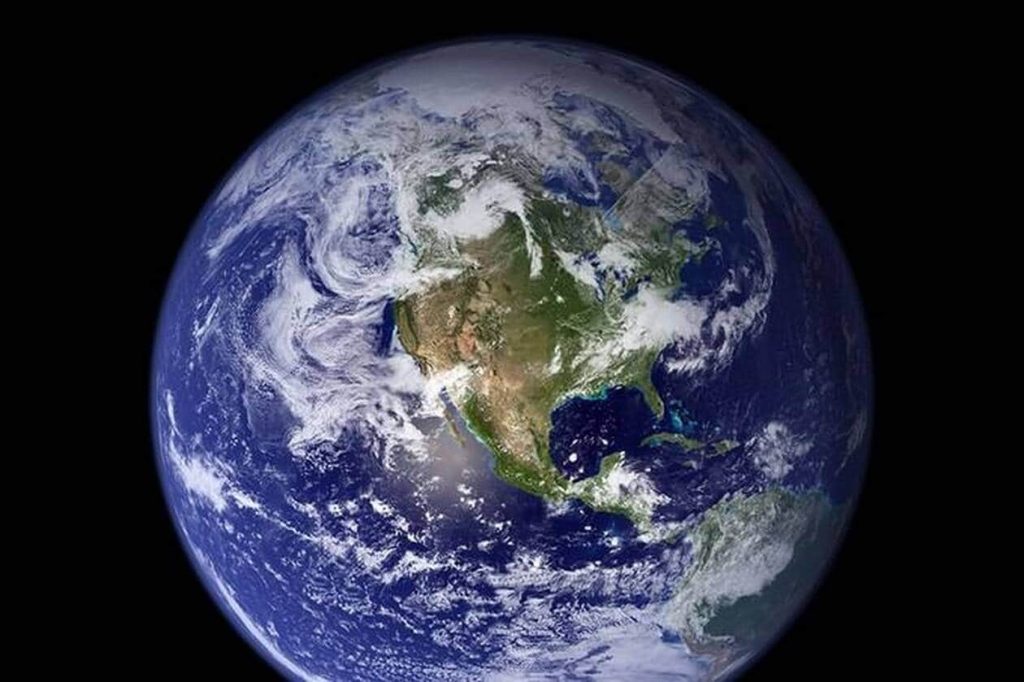
The Earth has broken the record for its rotation speed and the acceleration continues – Edition du soir Ouest-France
On June 29, 2022, Earth set a new record for rotational speed: 24 hours minus 1.59 milliseconds. However, this sudden acceleration, dating back several years, is not alarming. Clarifications with Christian Bezouar, astronomer with the National Earth Rotation Service, at the Paris Observatory.
On June 29, 2022, the Earth completed one revolution in 24 hours minus 1.59 milliseconds, “The latest in a series of speed records since 2020”, The site explains in English time and date In an article dated July 28, 2022. It’s an amazing situation, but not so alarming. Christian Bezouar, an astronomer with the National Earth Rotation Service at the Paris Observatory, summarizes the situation as follows: Since 2016, we have noticed that the speed of the Earth’s rotation is accelerating, so the length of the day is decreasing! »
For the French astronomer who studies this phenomenon in the research lab Sirt (Space-time reference systems), this observation is, to say the least, unexpected with respect to previous observations. Since 1830, There was a decrease in the speed of the Earth’s rotation Thus increasing the length of the day. This trend has been reversed for seven years without being able to explain it. » Thus, 2020 marked the fastest 28 days since 1930.
Rotation was always irregular
However, this difference does not worry the French scientist who closely follows changes in the Earth’s rotation and deformations. Because the revolution of the planet on its axis is irregular. We know that its duration increases by about 2 milliseconds every century, and on a year scale, it fluctuates quite a bit by a few milliseconds compared to the international reference time (known as an atomic) set at 86,400 seconds.
“It is a completely natural and cyclical phenomenon that we can explain and model. Over the course of a year or two, it is particularly proven that speed varies seasonally and several phenomena come into play, The astronomer explains. 80% of changes in Earth’s speed are related to atmospheric mass transport, i.e. wind. »
Another reason: the tides that “It has the effect of distorting the oceans as well as the land,” Identifies. “This phenomenon is strong enough to produce 10 to 20% changes in rotational duration.”
Uncertainty about global warming
Over the course of several years, astronomers have also noticed fluctuations of one to a few milliseconds that they find difficult to explain. “It is believed to be caused by internal movements in the Earth, molten magma under the mantle. But we do not have any observations of solid core, such as those made in the atmosphere, that would validate these hypotheses.”
Just like climate change some researchers have presented. “Today, we put everything against the background of climate change. Is the Earth spinning faster under its influence? We don’t know anything. To say that this is just a guess.” Christian Bezouar thinks.
Offset from atomic time
Should we be concerned about this acceleration? No, according to the astronomer. This fluctuation in the order of milliseconds throughout the day will not alter the course of our existence.
For international timekeepers, which allow us to set our clocks, that is another matter. These ultra-accurate atomic clocks are used to measure Coordinated Universal Time (UTC). Because of these irregularities, the Earth’s rotation time becomes out of sync with atomic time. »
For several decades, we have made adjustments. “Since 1972, the International Earth Rotation and Reference Systems Service has regularly added a ‘leap second’ to the year, at the end of June or the end of December. There have been 28 so far. The last time dates back to December 31, 2016.
discussion again
Thus, the recent acceleration of the Earth’s rotation can raise doubts about this process. “For the first time, if the Earth continues to accelerate, we may have to remove a second. It never happened.”
This unprecedented situation also raises the question of interest in maintaining this technology to balance our astronomical observations and our clocks, which were created to compensate for the slowing down of the Earth. This topic has been discussed for several years.
The danger of bugs
This is not only of interest to astronomers. Because these modifications do not facilitate the task of satellites, communications networks, or financial markets. For example, the addition of leap seconds in recent years has caused a synchronization problem on the web, particularly for servers or merchant sites.
Read also: But why does the Earth rotate?

“Incurable web evangelist. Hipster-friendly gamer. Award-winning entrepreneur. Falls down a lot.”
